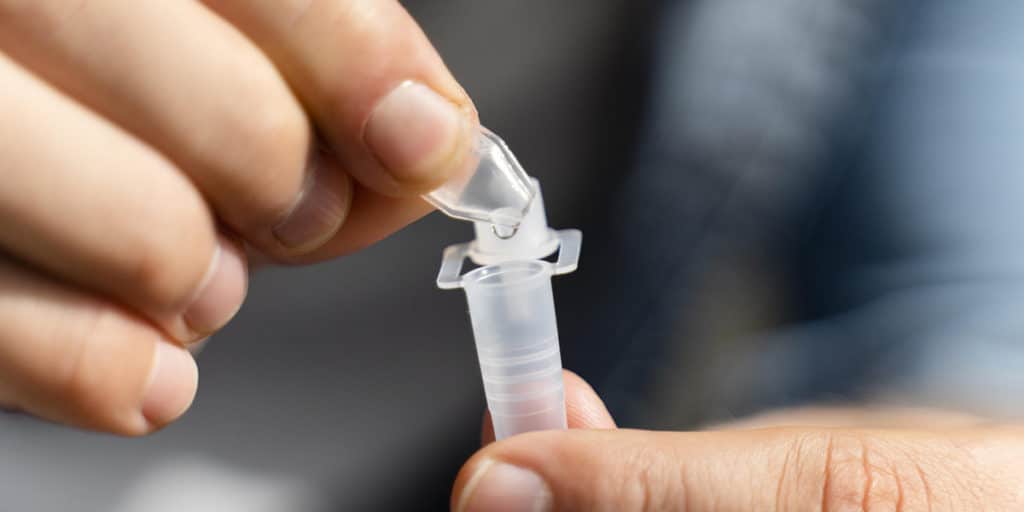Genital Herpes: Unraveling the Myths and Understanding the Facts
Genital herpes is a widespread sexually transmitted infection caused by the herpes simplex virus (HSV).

Minors' access to STD testing has improved in the last 30 years. All 50 states now allow STD testing for minors, and only a few states have minimum age requirements for testing. There are no states that require a parent to know that their minor is seeking STD testing. Still, some states allow health care providers the right to notify the parent or guardian of the STD test services if they believe it is in the minor's best interest.
Most states in the US allow minors access to STD testing at any age. Below are the states that do have a minimum age requirement for minors to consent to these services:
STD testing for minors also remains confidential between the health worker and the minor, even though the minor is underage. The Health Insurance Portability and Accountability Act (HIPAA) protects their private information unless they consent to share it with their parent or guardian.
In Iowa, however, medical providers must inform the parent or guardian only of a positive HIV test result. Any other test results remain confidential.
Can a minor get tested for an STD without telling their parent? The short answer is yes. Minors can consent for health care related to STD testing and certain other reproductive health services independently, without informing a parent. However, in 18 states, the health care worker reserves the right to notify the parent or guardian of a minor's attempt to get a testing service if they think it is necessary, usually in cases of suspected abuse. The physician is not allowed to divulge the results of the STD test to the parent or guardian without the minor's consent.
It is essential for minors participating in sexual activities to get tested for STDs regularly. Most STDs have no outright signs or symptoms and can only be found through testing. A 10-panel STD test can identify the most common STDs in teens and minors. Catching these STDs early can prevent ongoing medical issues with reproductive systems. For example, gonorrhea and chlamydia can make pregnancy difficult or impossible later in life if left untreated. Untreated STDs can also lead to weakened immune systems and an increased chance of developing HIV, which can be fatal. Teens should talk to their pediatrician or health clinic about their STD testing options.
Statistically, nearly half of all reported STDs occur in people between the ages of 15 and 24, but even someone as young as 13 can get an STD. Younger people are more prone to STDs because they:
Minors must understand the importance of taking responsibility for their health. STDs among young people are becoming more prevalent due to a lack of understanding of the consequences of unsafe sex and little education about what happens after sex. Many teens hesitate to seek help with STDs because they are embarrassed or do not want their parents to find out. Parents and guardians should talk to their children about safe sex, the risk factors involved with STDs, and treatment for STDs. They should discuss regular STD testing for minors for ongoing sexual activity, especially in the case of unprotected oral, anal, and vaginal sex with one or more partners.
Minors can visit their pediatrician or a local health clinic for testing. Rapid STD Testing has testing centers throughout the US that offer fast, accurate, and confidential results for minors and adults. Same-day STD testing provides accurate results in as little as one to two days. A same-day or rapid STD test is essential because any sexually transmitted disease requires treatment immediately to prevent spreading the disease or experiencing lasting effects or complications.
Yes! All sexually active teens have access to STD healthcare and should be tested for the most common STDs at least once per year. Minors should also get tested if they think they may have an STD after any sexual contact, even if they used protection.
Minors can be tested for STDs confidentially by their family doctor without a parent or guardian's permission. Sometimes, a family's insurance provider does not have the same confidential policy. If you are worried about your insurance provider learning about your STD test, you can visit your nearest Rapid STD Testing clinic, where testing is still private, and staff will not share results with your family's health insurance. Doctors, parents, and insurance providers do not receive the test results. Results also do not end up on health records, providing peace of mind to minors that might be afraid of their parents finding out about their STD test results.
STD testing for minors can be understandably scary. The team at Rapid STD Testing is here to make testing for STDs easy, discreet, and judgment-free. Need to be tested right now? Call us today to request a same-day STD test at one of our clinics nationwide and get results in as little as one to two business days.

No embarrassing exams, long waiting lines, or multiple visits. Just a quick lab visit for fast results.
Discover a lifestyle-focused approach to quality content at RapidSTDtesting.com. Unlike others, we don't rely on gimmicks or fabricated data to lure visitors. Our commitment goes beyond clicks – we're dedicated to answering the questions you search for online. With a team comprising medical experts and content specialists, our articles are meticulously crafted to promote STD testing, educate, and dismantle social stigmas.
Embrace a confidential atmosphere with our private testing options, ensuring your privacy is paramount. Every article is meticulously fact-checked and approved by medical advisors, guaranteeing accuracy and reliability. Our team, comprised of doctors and medical professionals, ensures that each piece of content serves a purpose – to inform, educate, and promote awareness.
Join us as we bridge the gap between medical expertise and lifestyle choices. RapidSTDtesting.com is your trusted source for informative, medically vetted content.